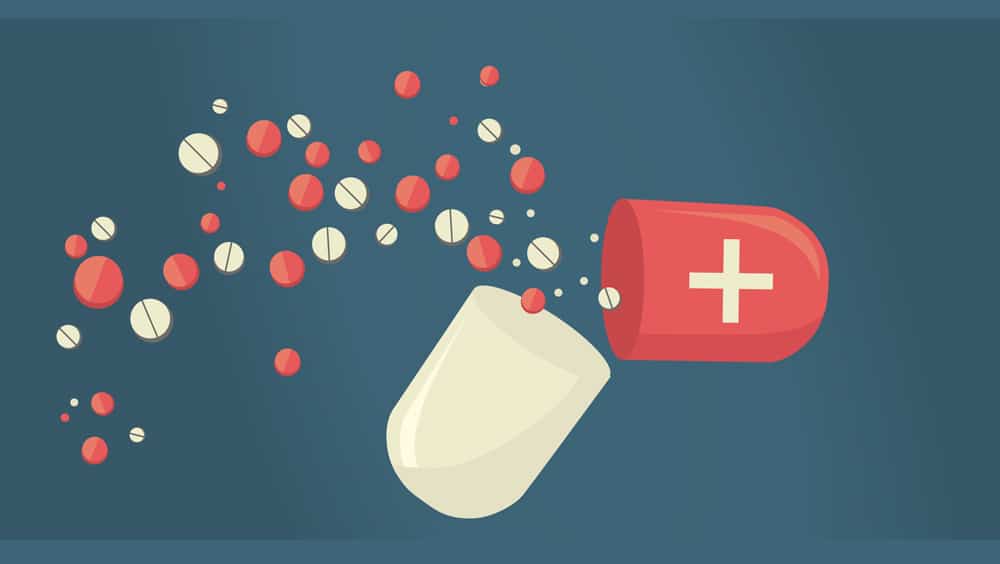The negative impact and worst effects of the patent cliff seem to be behind us, writes Matt Moran.
Much has been written around the patent cliff and its impact on the sector in Ireland, and the consequent impact on national GDP numbers. However, there can be no doubt that this trend has been firmly reversed, mainly driven by a wave of new investment in the industry and an impressive response by the sector to control its operating costs coupled with the retention of first-class standards, which are crucial for this critical sector.
An obvious result of this has been the decision by Pfizer to defer the closure of its Little Island plant in Cork where one of the high profile medicines to come off patent – Lipitor – is manufactured. The efficiencies achieved at this plant have allowed it remain in the market at the lower generic cost base, and much of these efficiencies have been achieved through clever and innovative process development.
Export figures recently published also back this up. In March 2015, Ireland’s export figures were the highest in 13 years, and much of this has been attributed to the uplift in exports from the sector. Exports were up 58% from 2014 or from €4.4bn to €5.5bn. This is tangible evidence that the sector is in expansionary mode again.
There is good reason to be optimistic that this recovery will carry forward into the medium to long-term. The evidence for this is borne out by a more or less continuous stream of new investments over the past couple of years. In the main, these investments are in biopharmaceutical manufacturing or high-end chemical synthesis or product and process development.
As one can see from table 1 (on the next page), €3.6bn in new capital investment is in the process of being invested in the country. It is likely that this will result in the creation of over 2,500 new direct jobs in the sector, not to mention the additional indirect employment that will be created during construction of these facilities
EXPANSION OF EXISTING OPERATIONS
These are investments made by existing companies who have operated successfully in this country for some time. These tend to fall into two further categories – product or process development, and advanced or biopharmaceutical manufacture. Advanced manufacture would include high potency synthesis with options for continuous or plug and play operations such as the new synthesis plant recently opened by Pfizer at their Ringaskiddy Facility – actually a retrofit of an older phased-out plant. This is an excellent example of a plant moving in tandem with cutting edge developments in the space at a global level.
MSD at Ballydine have established a state-of-the-art product development facility co-located with their chemical synthesis plant. This is concentrating on drug development and chemical synthesis.
AbbVie in Sligo have completed investment in pharmaceutical manufacture to the tune of over €85m, and Mylan are investing €75m per annum over a five-year period to 2016 in developing their pharmaceutical capabilities in Dublin and Galway.
Biopharmaceutical manufacturing that incorporates all aspects of utilising genetic engineering techniques to produce, purify, formulate and package large molecules such as monoclonal antibodies is recognised as a very important emerging technology for the future of the pharmaceutical industry. It is vital that Ireland is a major player in this arena. The recent explosion of investment in this field in this country has pushed Ireland to second place behind the USA as a centre for the manufacture and development of such products.
There have been a number of high profile investments in this space; Eli Lilly will invest €330m in a second biomanufacturing facility at their Kinsale campus. What makes the Eli Lilly investment even more interesting is that fact that it is co-located with existing chemical manufacture, making this site unique in Ireland and Europe. Eli Lilly continue to invest in product and process development at the Co. Cork site, making them a living example of the development and manufacturing strategy espoused in the PharmaChemical Ireland series of strategic plans discussed at length in previous articles here.
Allergan continue on their journey of being the primary manufacturing and development location for the California-based corporation by investing €350m in a new biologics facility in Westport. They intend to employ an additional 200 in this bringing their total headcount well over the 1,000 mark, making them a vital part of the local economy in Co. Mayo. Mallinkrodt Medical Imaging have just announced a €45m investment at their Dublin site.
The Pfizer biopharmaceutical site at Grangecastle, Dublin continues to be central to the future of their biotech portfolio leading the company to invest a further €200m at that site. Bristol-Myers Squibb will invest €722m in a new biotechnology manufacturing facility in Dublin also, making the city a global hub for such manufacturing. Meanwhile, both MSD at Brinny, Genzyme-Sanofi in Waterford and Amgen in Dublin continue to invest in their biotech operations.
Exports were up 58% from 2014 or from €4.4bn to €5.5bn, tangible evidence the sector is in expansionary mode again
GREENFIELD INVESTMENTS
Making up the rest the capital being invested by the industry in the country are a number of new companies. These are generally emerging biotech companies tending to specialise in the rare or orphan disease space – similar to Genzyme who established in Ireland a number of years ago. These are very high-value products aimed at diseases of unmet therapeutic needs in the main.
The value of these products means that they can achieve blockbuster, or close to blockbuster status, relatively quickly and from a national perspective can replace revenues lost as a result of the patent cliff. A prime example of this would be Alexion, founded in 1992, whose drug Soliris has been developed to treat paroxysmal nocturnal hemoglobinura (PNH) and atypical haemolytic urema syndrome (aHUS).

Matt Moran, director, PharmaChemical Ireland
Alexion have embarked on a three-phase investment in Ireland. They purchased part of the original Elan plant in Athlone to establish aseptic filling operations in the country. This has been followed by a €450m investment at two locations in Dublin to establish supply chain, warehousing, laboratory and packaging operations. They plan to employ 300 in the country by 2016.
Regeneron, established in New York, in 1988 has purchased the original Dell facility in Limerick and will bring the much needed investment of €220m to that city, creating 300 jobs in the process. Regeneron, who already have offices in Dublin, will build a brand new biopharmaceutical manufacturing plant there. Regeneron are also part of the new wave of US-based biotech companies.
BioMarin purchased the existing Pfizer biotechnology campus in Ringaskiddy, Cork and will create 100 jobs there. BioMarin are based in California and specialise in enzyme replacement therapies. And Jazz Pharmaceuticals plan to invest €50m, creating 50 new jobs, at a manufacturing site in Athlone. Jazz specialise in narcolepsy, hemotology, oncology and psychiatry.
GROWTH POTENTIAL
Clearly, the biopharmaceutical and chemical sectors remain strong in Ireland. The patent cliff did impact exports as PharmaChemical Ireland predicted a number of years ago. However, the strategic response of the sector which PharmaChemical Ireland has led through publication and execution on its strategic plan, appears to be bearing fruit.
The sharp falloff in exports experienced between 2011 and 2013 seems to be tapering off quickly and the significant level of investment in new cutting edge manufacturing – bolstered by a much greater emphasis on product and process development here – will result in a boost to economic activity in the sector in the medium-term. The renewed emphasis on development will result in the generation of more local know-how and intellectual capital which can only bode well for the long-term future of the sector.
CONTINUING THE INNOVATION JOURNEY THROUGHOUT THE LIFECYCLE
PharmaChemical Ireland will hold a conference, entitled ‘Continuing the Innovation Journey Throughout the Lifecycle’ on September 23rd-24th at the Radisson Little Island, Co. Cork.
For more information or to register to attend: w: pharmachemicalireland.ie/IBEC






